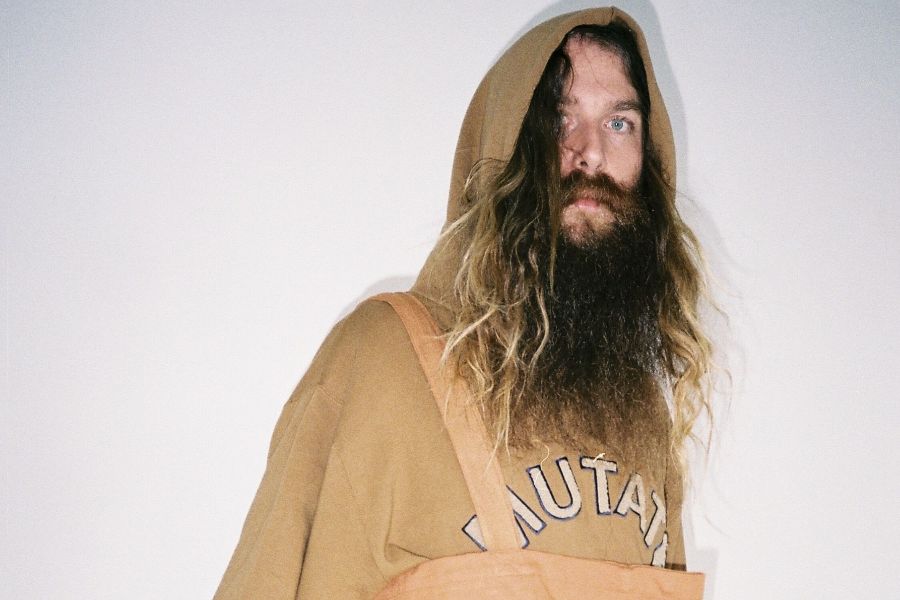
Late last year, musician Daniel Stricker was confined to a hospital bed for a spell of two weeks. The artist of Midnight Juggernauts and Mind Gamers fame hadn’t seen it coming. And when it came, he wasn’t seeing that clearly: Morphine was a prominent feature. But his partner, the artist Jedda-Daisy Culley, brought him his autoharp and singing bowl. And through the fog he began to make music.
He came out of this period of hospitalised isolation with life lessons he’s more than happy to share:
“Drink lots of water, write down your thoughts first thing in the morning, don’t get distracted, your phone won’t save you but notepad, the pattern, voice memos might help.”
He also left the experience with an album, Morphin, released under his artist name DANIAL - a moniker for this deeply personal and equally ethereal side.
Stricker has long been fascinated with other dimensions but these tunes created alone in his hospital bed are his most intimate yet. And of course he’s well-aware of the parallels to our current situation. “It was very much a snapshot of where I was at, and still am,” he tells. “Of course, when we all got locked up, it felt even more relevant and immediate.”
The spell in hospital that spurred Morphin – did you know it was coming?
That I’d be in hospital, no. That I’d write this record, no - I’d never written something so personal - I’ve made so many records, this was different. In a way though, I knew it was coming ... bubbling up inside, I just needed to acknowledge it, I needed a catalyst.
Did you have any idea that you would get an album out of this experience?
No. But Jedda (my partner) believed it could; she brought me my autoharp, singing bowl and iPad and off I went. I’d keep sending her little voice recordings on my phone everyday, a new song or lyric or two a day - she would push me, tell me to go to my darkest or saddest or happiest places. To be honest I was pretty out of it the whole time, and in a way it helped me not overthink anything. I knew without doubt though when I got out I had an album.
What was writing and recording like – did the hospital staff cotton on?
They thought I was mad. They’d try bring food in and the whole table was covered with instruments. They quite liked my Chinese singing bowl tbh.
What was the most pervasive emotion during that time?
Longing.
If you could take any element of that period with you, what would it be?
The ability to not overthink anything. Life can be simple in a hospital bed.
The album also features collaborations with your partner Jedda-Daisy Culley. Tell us more …
She’s my muse, lover, bringer of the bowl and harp ... she also loves country music, is an incredible artist, and has a voice like an orange sky sunrise.
Did the experience ready you for what’s happening at the moment, do you think?
Definitely in my life. And I believe people will find it maybe hopefully opens them up to look inward. If you listen to lyrics, then in the lyrics but for me it hits me hardest in the mood of the songs, makes the lyrics more powerful. They are almost isolated songs in a way, there’s barely any drums on the whole record (and I’m a drummer), stripped back - after I got out of hospital I teared layers off, I wanted you to feel like you were in my mind in that hospital bed, and that it could ‘wash’ over you. Hopefully you can put it on while taking a Zoom meeting lol; it’s not happy hardcore, my other default position.
How are you feeling now?
Like I’m mighty Morphin into a power ranger.
What does the future hold?
Well I had all these big things happening this year , they’ve all been postponed (I was meant to be touring in Europe right now ) - but just like my hospital moment, I’m here now, moving slow, trying to continue to look at my flaws and embrace myself, love myself so I can love others. I know now that it’ll probably end up being a bigger more important year than I could have imagined ...



